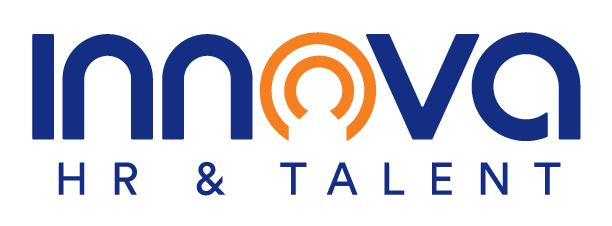By Salvador Ismayel / Innova Hr & Talent Director
The job interview is a turning point in the personnel selection process, where a detailed evaluation of candidates is carried out to determine who would best fit the position and the company’s dynamics. Beyond being a mere encounter between employer and applicant, this phase becomes a space of interaction where crucial skills are displayed by the interviewer. These skills range from the ability to formulate precise questions to the ability to read between the lines and understand the underlying motivations and skills of each candidate.
The interviewer not only seeks to assess the applicant’s experience and technical skills but also aims to identify personality traits, adaptability, and teamwork aptitudes. Furthermore, the interview provides an opportunity to evaluate the organizational culture and whether the candidate would fit well within the existing team. Therefore, the interviewer must have the ability to read non-verbal signals, listen empathetically, and understand the subtleties of human interaction to make an informed and accurate decision.
Hence, the job interview serves not only to select the most technically qualified candidate but also to find the person who best fits the culture, values, and specific needs of the position and the company. It is a process in which the interviewer acts as a catalyst, guiding the conversation towards relevant areas and making decisions that will influence the composition and success of the team in the future.

Here are some of the essential capabilities that every interviewer should possess:
Ability to Formulate Relevant Questions: The interviewer must have the ability to formulate questions that go beyond the surface and provide valuable information about the candidate’s skills, experiences, and personality. Relevant questions are fundamental for obtaining a more complete understanding of the applicant’s profile and for properly assessing their suitability for the position and the company.
Active Listening Skills: Active listening is essential for an effective interviewer. It involves not only hearing the candidate’s words but also understanding their meaning and capturing the emotions and nuances behind them. This skill allows the interviewer to connect more deeply with the candidate, identify their motivations, and assess their cultural and emotional fit with the team and the company.
Emotional Intelligence: Emotional intelligence is a crucial skill for any interviewer. It involves the ability to understand and manage one’s own emotions, as well as to perceive and understand the emotions of others. In the context of the interview, this allows the interviewer to create an empathetic and trusting atmosphere, interpret the candidate’s responses accurately, and make informed decisions about their suitability for the position.
Observation Skills: A good interviewer must be observant and able to read the candidate’s non-verbal signals. Body language, facial expression, and other gestures can provide valuable clues about the sincerity, confidence, and cultural compatibility of the applicant. Being attentive to these signals allows the interviewer to gain a more complete understanding of the candidate and make more informed decisions.
Empathy and Sensitivity: Demonstrating empathy and sensitivity towards candidates during the interview is essential for creating an atmosphere of trust and openness. This facilitates the candidate feeling comfortable sharing personal information and providing honest answers, which in turn allows the interviewer to more accurately assess their suitability for the position and the company.
Analytical Skills: The interviewer must be able to analyze and synthesize the information gathered during the interview to make informed decisions about the candidate’s suitability. This involves evaluating both technical skills and interpersonal competencies, as well as considering the cultural compatibility and values of the company. Strong analytical skills are crucial for selecting the most suitable candidate for the position.
Clear and Transparent Communication: It is fundamental that the interviewer is able to communicate the next steps of the selection process clearly and transparently and provide constructive feedback to the candidates. Effective communication helps maintain a positive experience for all involved, regardless of the final outcome of the interview.
Flexibility and Adaptability: Each candidate is unique, so the interviewer must be able to adapt their approach according to the circumstances. Being flexible in how the interview is structured and how candidates are evaluated can help gain a more complete understanding of their skills and personality. The ability to adapt to different situations and needs is key to selecting the perfect candidate for the position.
Time Management: The ability to efficiently manage time during an interview is crucial to ensure that all relevant aspects are covered and that established schedules are respected. A skilled interviewer must plan the duration of the interview in advance, allocating adequate time to each question and ensuring that the pace is maintained to cover all important topics without unnecessarily extending the interview.
Creativity: Creativity is an invaluable skill for an interviewer, as it allows them to find innovative ways to assess candidates’ skills and abilities. This may include designing unconventional questions, implementing practical exercises, or creating hypothetical situations that allow candidates to demonstrate their creativity, lateral thinking, and ability to adapt to different work scenarios.
Problem-Solving Skills: The ability to solve problems is essential for an interviewer, as unexpected challenges may arise during the selection process. From dealing with ambiguous answers from candidates to addressing conflicts or misunderstandings, the interviewer must be able to think clearly and find effective solutions to maintain the flow of the interview and achieve the established objectives.
Integrity and Ethics: Integrity and ethics are fundamental for any interviewer. They must maintain high standards of professional integrity and ethical conduct at all stages of the selection process. This includes treating all candidates with respect and fairness, ensuring the confidentiality of information provided during the interview, and making decisions based on merit and abilities, avoiding any form of discrimination or favoritism. Ethical conduct strengthens the credibility of the selection process and contributes to building a positive reputation for the organization.
Therefore, being an effective interviewer goes beyond simply asking questions and listening to answers. It requires a combination of skills ranging from empathy and observational ability to creativity and ethical integrity. By mastering these skills, interviewers can conduct more effective selection processes, identifying candidates who not only possess the necessary technical skills but also those who best fit the culture and values of the company. Ultimately, the job interview is not only a means to select the best candidate but also an opportunity to strengthen the organization by attracting talents that positively contribute to the team’s success and cohesion.





